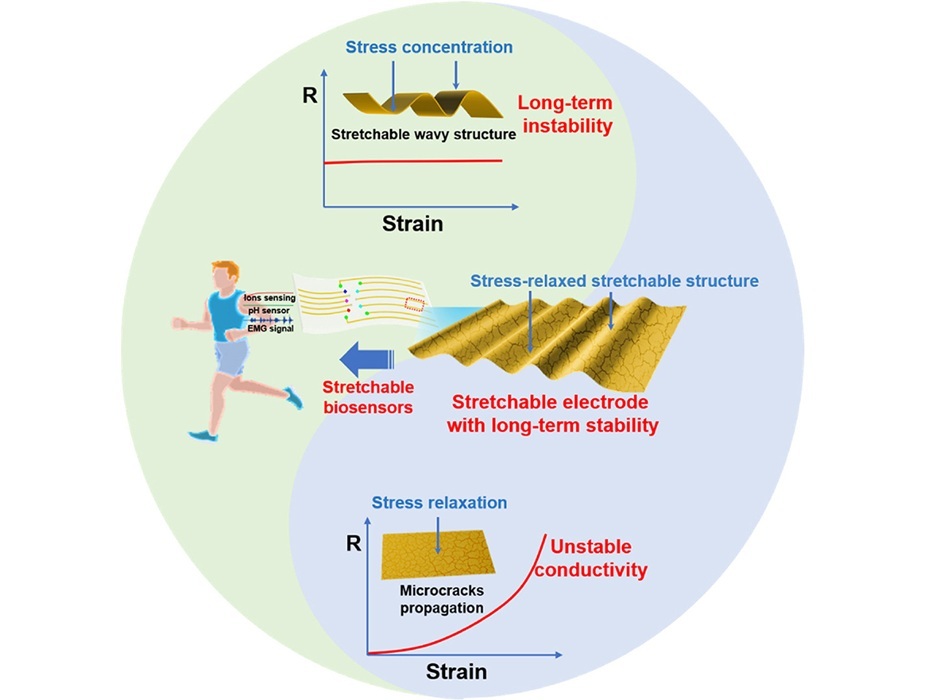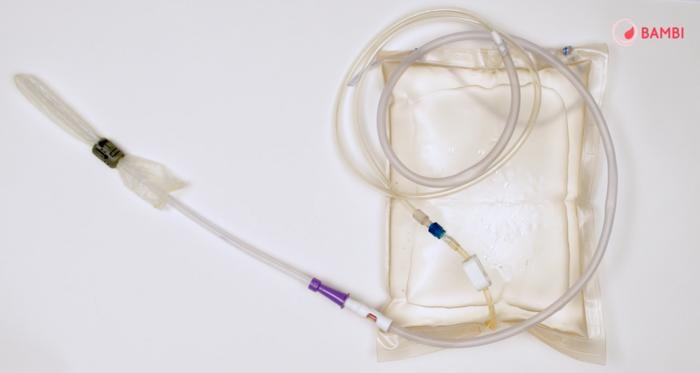First Molecular T Cell Monitoring Tool for SARS-CoV-2 Launched
|
By HospiMedica International staff writers Posted on 05 Aug 2020 |

Illustration
Adaptive Biotechnologies (Seattle, WA, USA) has launched immunoSEQ T-MAP COVID, a proprietary research product and data analysis service to accurately and reproducibly measure the T-cell immune response to vaccines in development and track the persistence of that response over time.
immunoSEQ T-MAP COVID provides researchers with a quantitative map of T-cell receptors (TCRs) and SARS-CoV-2 antigens that are driving the immune response to vaccines and other therapies in development for COVID-19. This reproducible, high-throughput, high resolution, molecular data will be made available through Adaptive’s existing cloud-based immunoSEQ Analyzer to assist with analysis and visualization of the immune response. Data from the Snyder et al. manuscript elucidate the magnitude and dynamics of the T-cell response to SARS-CoV-2 infection from over 1,000 patients and several thousand controls. First, Adaptive’s immune medicine platform was used to identify the parts of the virus that induce a T-cell response. These data confirm findings from other studies showing that T-cell response to SARS-CoV-2 is directed against a small number of viral antigens in addition to the spike protein, the current target of most vaccines in development. These targets may inform design or enhancement of next-generation vaccines.
Then, the shared “public” T-cell receptors that are specific to those immunogenic parts of the virus were identified. These TCRs enable T-cell response to the virus to be measured and tracked over time at the individual and population levels. Most notably, >90% of patients still have these shared SARS-CoV-2 specific T cells for several months post confirmed diagnosis, the maximum time period currently available to assess response. These results are powered by ImmuneCODE, a groundbreaking open database developed with partner Microsoft, to share the population-wide T-cell immune response to the COVID-19 virus with the research community. Previously published research on other coronavirus infections have demonstrated persistent T cells for years following initial infection, even when antibodies are undetectable in convalescent patients, highlighting the importance of the T-cell response in understanding immunity to the virus. Based on these results and ongoing research on real-world samples, Adaptive is also completing validation of a clinical T-cell based diagnostic to broadly identify past exposure reliably and reproducibly. The company is pursuing an Emergency Use Authorization (EUA) from the FDA for use of this diagnostic test, immunoSEQ Dx SARS-CoV-2.
“The critical role of the T-cell response is increasingly becoming a focus of attention. While antibodies have been a mainstay of measuring the immune response to vaccines, for COVID-19, it is becoming clear that the T-cell response is necessary for a complete picture of immunity,” said Harlan Robins, Chief Scientific Officer and co-founder. “Adaptive’s proven immune medicine platform is designed for the quantitative sequencing and mapping of T cells at scale from a simple blood draw and can be incorporated seamlessly into clinical trials.”
“The ImmuneCODE data and analyses to date have several real-world applications to address the COVID-19 pandemic, including the support of vaccine trials and therapeutic development,” said Peter Lee, Corporate Vice President, Research & Incubations, Microsoft. “As we continue to grow this groundbreaking database and measure the persistence of the adaptive immune response over time, these critical findings will advance ongoing and new efforts to help solve this global public health crisis.”
Related Links:
Adaptive Biotechnologies
immunoSEQ T-MAP COVID provides researchers with a quantitative map of T-cell receptors (TCRs) and SARS-CoV-2 antigens that are driving the immune response to vaccines and other therapies in development for COVID-19. This reproducible, high-throughput, high resolution, molecular data will be made available through Adaptive’s existing cloud-based immunoSEQ Analyzer to assist with analysis and visualization of the immune response. Data from the Snyder et al. manuscript elucidate the magnitude and dynamics of the T-cell response to SARS-CoV-2 infection from over 1,000 patients and several thousand controls. First, Adaptive’s immune medicine platform was used to identify the parts of the virus that induce a T-cell response. These data confirm findings from other studies showing that T-cell response to SARS-CoV-2 is directed against a small number of viral antigens in addition to the spike protein, the current target of most vaccines in development. These targets may inform design or enhancement of next-generation vaccines.
Then, the shared “public” T-cell receptors that are specific to those immunogenic parts of the virus were identified. These TCRs enable T-cell response to the virus to be measured and tracked over time at the individual and population levels. Most notably, >90% of patients still have these shared SARS-CoV-2 specific T cells for several months post confirmed diagnosis, the maximum time period currently available to assess response. These results are powered by ImmuneCODE, a groundbreaking open database developed with partner Microsoft, to share the population-wide T-cell immune response to the COVID-19 virus with the research community. Previously published research on other coronavirus infections have demonstrated persistent T cells for years following initial infection, even when antibodies are undetectable in convalescent patients, highlighting the importance of the T-cell response in understanding immunity to the virus. Based on these results and ongoing research on real-world samples, Adaptive is also completing validation of a clinical T-cell based diagnostic to broadly identify past exposure reliably and reproducibly. The company is pursuing an Emergency Use Authorization (EUA) from the FDA for use of this diagnostic test, immunoSEQ Dx SARS-CoV-2.
“The critical role of the T-cell response is increasingly becoming a focus of attention. While antibodies have been a mainstay of measuring the immune response to vaccines, for COVID-19, it is becoming clear that the T-cell response is necessary for a complete picture of immunity,” said Harlan Robins, Chief Scientific Officer and co-founder. “Adaptive’s proven immune medicine platform is designed for the quantitative sequencing and mapping of T cells at scale from a simple blood draw and can be incorporated seamlessly into clinical trials.”
“The ImmuneCODE data and analyses to date have several real-world applications to address the COVID-19 pandemic, including the support of vaccine trials and therapeutic development,” said Peter Lee, Corporate Vice President, Research & Incubations, Microsoft. “As we continue to grow this groundbreaking database and measure the persistence of the adaptive immune response over time, these critical findings will advance ongoing and new efforts to help solve this global public health crisis.”
Related Links:
Adaptive Biotechnologies
Latest COVID-19 News
- Low-Cost System Detects SARS-CoV-2 Virus in Hospital Air Using High-Tech Bubbles
- World's First Inhalable COVID-19 Vaccine Approved in China
- COVID-19 Vaccine Patch Fights SARS-CoV-2 Variants Better than Needles
- Blood Viscosity Testing Can Predict Risk of Death in Hospitalized COVID-19 Patients
- ‘Covid Computer’ Uses AI to Detect COVID-19 from Chest CT Scans
- MRI Lung-Imaging Technique Shows Cause of Long-COVID Symptoms
- Chest CT Scans of COVID-19 Patients Could Help Distinguish Between SARS-CoV-2 Variants
- Specialized MRI Detects Lung Abnormalities in Non-Hospitalized Long COVID Patients
- AI Algorithm Identifies Hospitalized Patients at Highest Risk of Dying From COVID-19
- Sweat Sensor Detects Key Biomarkers That Provide Early Warning of COVID-19 and Flu
- Study Assesses Impact of COVID-19 on Ventilation/Perfusion Scintigraphy
- CT Imaging Study Finds Vaccination Reduces Risk of COVID-19 Associated Pulmonary Embolism
- Third Day in Hospital a ‘Tipping Point’ in Severity of COVID-19 Pneumonia
- Longer Interval Between COVID-19 Vaccines Generates Up to Nine Times as Many Antibodies
- AI Model for Monitoring COVID-19 Predicts Mortality Within First 30 Days of Admission
- AI Predicts COVID Prognosis at Near-Expert Level Based Off CT Scans
Channels
Critical Care
view channel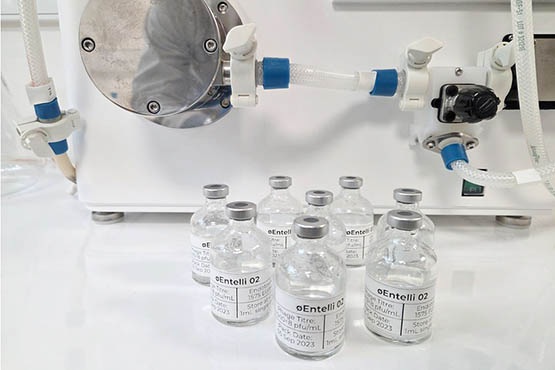
Virus Cocktail to Combat Superbugs Offers New Precision Medicine Approach for Hospitals Battling AMR
Antimicrobial resistance is one of the most pressing challenges in modern medicine, making once-treatable infections increasingly lethal. Enterobacter infections, for example, are difficult to treat and... Read more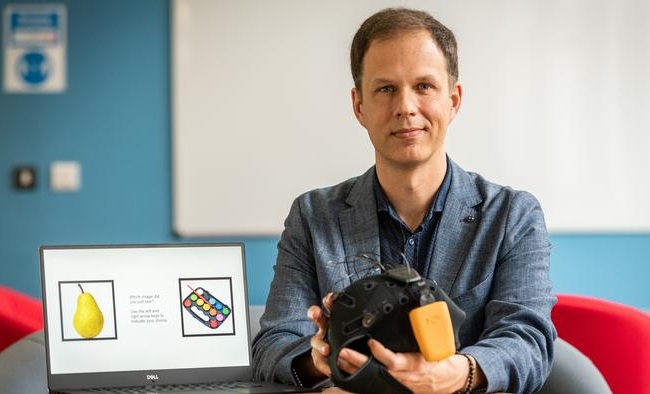
Brainwave Test Detects Memory Decline Years Before Alzheimer’s Diagnosis
Alzheimer’s disease develops silently for years before symptoms appear, making early detection a major challenge. Conventional diagnostic tools often miss the first decade or more of brain changes, delaying... Read moreSurgical Techniques
view channel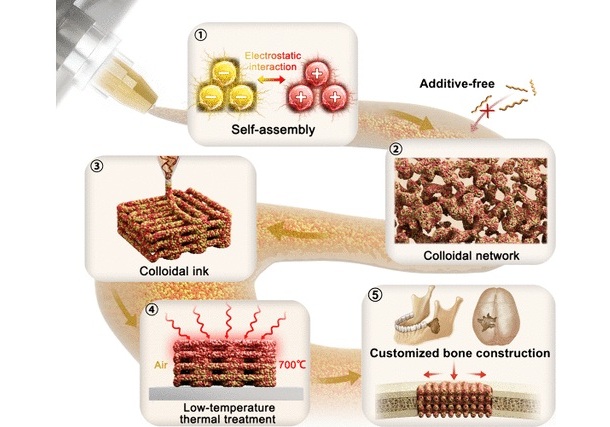
3D Printable Bio-Active Glass Could Serve as Bone Replacement Material
Glass may not seem like a natural choice for replacing bone, yet the two materials share surprising similarities in structure and strength. Bone and glass both bear weight more effectively than they withstand... Read more
Micro Imaging Device Paired with Endoscope Spots Cancers at Earlier Stage
Digestive system cancers are among the most common cancers, with hundreds of thousands of new cases and deaths reported annually in the United States. Standard endoscopy, the main diagnostic method for... Read more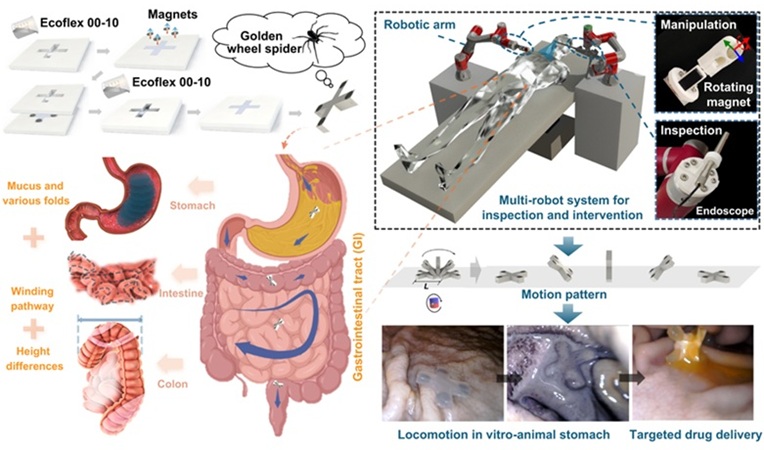
Spider-Inspired Magnetic Soft Robots to Perform Minimally Invasive GI Tract Procedures
The gastrointestinal (GI) tract is vital for digestion, nutrient absorption, and waste elimination, but it is also prone to cancers and other serious conditions. Standard endoscopy is widely used for diagnosis... Read morePatient Care
view channel
Revolutionary Automatic IV-Line Flushing Device to Enhance Infusion Care
More than 80% of in-hospital patients receive intravenous (IV) therapy. Every dose of IV medicine delivered in a small volume (<250 mL) infusion bag should be followed by subsequent flushing to ensure... Read more
VR Training Tool Combats Contamination of Portable Medical Equipment
Healthcare-associated infections (HAIs) impact one in every 31 patients, cause nearly 100,000 deaths each year, and cost USD 28.4 billion in direct medical expenses. Notably, up to 75% of these infections... Read more
Portable Biosensor Platform to Reduce Hospital-Acquired Infections
Approximately 4 million patients in the European Union acquire healthcare-associated infections (HAIs) or nosocomial infections each year, with around 37,000 deaths directly resulting from these infections,... Read moreFirst-Of-Its-Kind Portable Germicidal Light Technology Disinfects High-Touch Clinical Surfaces in Seconds
Reducing healthcare-acquired infections (HAIs) remains a pressing issue within global healthcare systems. In the United States alone, 1.7 million patients contract HAIs annually, leading to approximately... Read moreHealth IT
view channel
Printable Molecule-Selective Nanoparticles Enable Mass Production of Wearable Biosensors
The future of medicine is likely to focus on the personalization of healthcare—understanding exactly what an individual requires and delivering the appropriate combination of nutrients, metabolites, and... Read moreBusiness
view channel
Philips and Masimo Partner to Advance Patient Monitoring Measurement Technologies
Royal Philips (Amsterdam, Netherlands) and Masimo (Irvine, California, USA) have renewed their multi-year strategic collaboration, combining Philips’ expertise in patient monitoring with Masimo’s noninvasive... Read more
B. Braun Acquires Digital Microsurgery Company True Digital Surgery
The high-end microsurgery market in neurosurgery, spine, and ENT is undergoing a significant transformation. Traditional analog microscopes are giving way to digital exoscopes, which provide improved visualization,... Read more
CMEF 2025 to Promote Holistic and High-Quality Development of Medical and Health Industry
The 92nd China International Medical Equipment Fair (CMEF 2025) Autumn Exhibition is scheduled to be held from September 26 to 29 at the China Import and Export Fair Complex (Canton Fair Complex) in Guangzhou.... Read more












